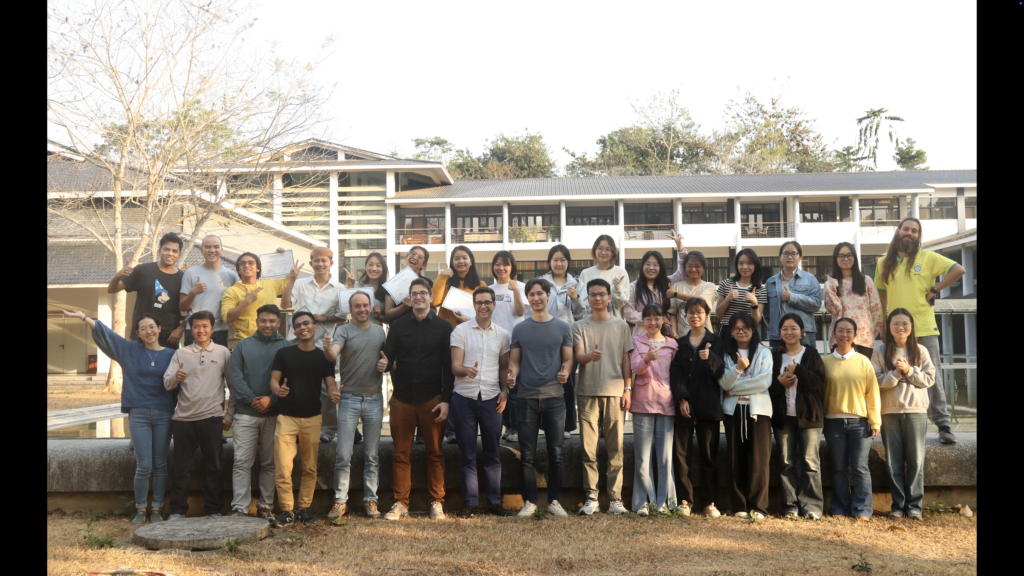The Community Ecology and Conservation Group (CEC) recently hosted a highly engaging workshop, “Introduction to Bioinformatics and Omics Data Analysis,” from 10th to 14th February 2025 at the Xishuangbanna Tropical Botanical Garden. The event brought together European trainers, students, and professionals from China, all keen to explore the dynamic field of bioinformatics and its applications in omics data analysis.
The workshop aimed to equip participants with foundational knowledge and practical skills for handling large-scale biological datasets generated by genomics and transcriptomics. Over five intensive days, attendees learned essential tools, algorithms, and software used in bioinformatics, including hands-on sessions focused on data processing, visualisation, and interpretation.
Led by Dr. Guillem Ylla, head of the Laboratory of Bioinformatics and Genome Biology at Jagiellonian University (Kraków, Poland), the workshop featured interactive lectures and guided practical exercises. Dr. Ylla was supported by his postdoctoral researcher, Dr. Tomasz Gaczorek, who assisted with hands-on exercises. Key topics included an introduction to NGS data analysis and transcriptomics, de novo genome assembly (conducted by Dr. Evgenii Baiakhmetov, a special research assistant at CEC), population genomics (GWAS and SNP calling), and opportunities for direct interaction with the trainers.
Professor Kyle Tomlinson, one of the organisers, emphasised the workshop’s significance: “Bioinformatics is at the heart of modern biology, enabling us to decode complex omics data and drive scientific discovery. This programme fosters capacity-building and collaboration among young scientists.”
Participants praised the comprehensive curriculum and supportive environment, noting how the workshop empowered them to address their research challenges more effectively. Many expressed enthusiasm for applying their new skills to projects spanning biodiversity conservation and rapid speciation.
As the CEC continues to advance interdisciplinary science through cutting-edge approaches, this workshop highlights its commitment to fostering scientific innovation. Plans to expand future iterations of the programme are underway, ensuring accessibility to a broader audience.

